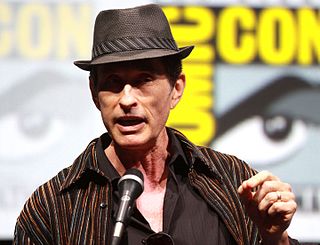A Quote by Didier Deschamps
It happens to attackers that they have a longer or shorter period where they are not always efficient.
Related Quotes
Whatever he says, let his inner resolution be not to bear whatever comes to him, but to bear it 'for a reasonable period'--and let the reasonable period be shorter than the trial is likely to last. It need not be much shorter; in attacks on patience, chastity, and fortitude, the fun is to make the man yield just when (had he but known it) relief was almost in sight.
In fact I no longer value this kind of memento. I no longer want reminders of what was, what got broken, what got lost, what got wasted. There was a period, a long period, dating from my childhood until quite recently, when I thought I did. A period during which I believed that I could keep people fully present, keep them with me, by preserving their mementos, their "things," their totems.
I'm fascinated by the period that goes from the Industrial Revolution to right after World War II. There's something about that period that's epic and tragic. There's a point after the industrial period where it seems like humanity's finally going to make it right. There were advances in medicine and technology and education. People are going to be able to live longer lives; literacy is starting to spread. It seemed like finally, after centuries of toiling and misery, that humanity was going to get to a better stage. And then what happens is precisely the contrary. Humanity betrays itself.
I think often people fall into the breadth trap of wanting to do too long a period of time, and obviously there's this sort of algorithm of how much depth you can put into something times how much of their life you're trying to show. My attitude has always been, I'd rather show a briefer period of time in more detail than a longer period of time in less detail.



































